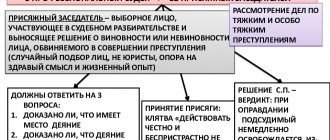In the media, we often come across situations where a person who has violated the law or is suspected of a criminal case, in order to avoid punishment, travels outside of Russia and lives quietly in one of the foreign countries. However, this is not a solution to the problem, since extradition is in force in many countries. This is, of course, a long and bureaucratic process, but it bears fruit. In this material we will try to understand what it means to extradite a suspect/accused of a crime.
The meaning of the term "extradition"
The concept of extradition implies the arrest of a suspect and his subsequent extradition to the authorities of the country that requires it. Moreover, it is worth noting that the arrested person does not necessarily have to have the citizenship of the country that requires his extradition. Another no more important circumstance is the individual consideration of each case.
Thus, to extradite means that one state extradites a person suspected of a crime to another state on the basis of a relevant international agreement and provided evidence of his guilt.
Of course, it is not always possible to achieve extradition; in most cases, the successful outcome of the case depends on the relationship between countries. If countries actively cooperate with each other in this matter, it is likely that the suspect will be extradited.
Right or duty?
Criminals who have committed illegal acts on the territory of one country and hope to escape justice by leaving it cannot always count on the success of their enterprise. Today, one of the forms of interaction between countries has become the institution of extradition of a criminal, legalized by legal documents.
The institution of extradition covers only criminal offenses.
The conditions under which extradition is carried out between states are enshrined in special legislative acts.
Depending on what kind of treaties and relations exist between countries, the extradition of criminal elements to another country may be:
- state law;
- his direct responsibility.
The obligation to extradite is a phenomenon that is not common in global legal practice.
It can only occur as a result of the conclusion of a special agreement between the powers, which will spell out the conditions obliging the extradition of the criminal. The existence of an extradition treaty does not guarantee that the subject will be transferred for justice to another country. Only confirmation of all the facts listed in the document necessary for extradition makes it mandatory.
Extradition is predominantly considered a right of the state, which can be used if necessary:
- at your own discretion;
- in accordance with its internal legislation.
No state can force another to hand over a criminal to it when there is no compliance with these actions in the internal laws of the country. This nuance in global law is often taken advantage of by fugitives from justice.
Extradition classification
Extradition has its own classification based on numerous criteria.
Depending on subjective grounds, this process can be divided into the following types:
- in relation to a citizen of the Russian Federation;
- in relation to a foreign citizen;
- in relation to a stateless person;
- in relation to bipatrid.
Taking into account the final purpose of the procedure, the classification is as follows:
- Carrying out criminal prosecution.
- Administration of justice.
- Execution of the sentence.
Depending on the rights and obligations of the parties agreeing with each other, extradition can be divided into the following types:
- Carrying out the procedure at the request of the Russian Federation from a foreign power to the authorized agency of the Russian Federation.
- Extradition of a suspect or accused at the request of any country to Russia.
Depending on the legal forms in which extradition norms are embodied, extradition can be contractual or non-contractual, and based on the method of legal influence, it can be divided into voluntary and mandatory.
Also, the issuance process can be primary and repeated. In this case, classification depends on achieving the purpose of extradition. If, after transfer to the requested state, the person evaded responsibility and returned to the country that extradited him, the procedure may be repeated.
Another classification criterion is the period of issue. If a suspect or accused is transferred to a foreign state for a certain period of time, this is temporary extradition; if a time frame is not specified, we are talking about final extradition.
Extradition of own citizens
Russian legislation enshrines the principle of non-extradition of its citizens. It was with this reservation that the Russian Federation signed the European Convention.
This principle does not apply in all countries. For example, France, Greece, the United States and a number of other states, on the basis of international treaties on extradition, extradite their citizens, but only on the condition that they became such after committing illegal actions provided for in the concluded agreements.
For example, in Japan, not only citizens of the country, but also ethnic Japanese are often not subject to extradition. However, if a non-Japanese offender has acquired Japanese nationality after committing a criminal offense, he may be extradited to the requesting party for prosecution and execution of sentence for illegal acts, as well as for trial.
In the Russian Federation, the basis for refusal may be the fact that the requested citizen has his own citizenship. Even those who have committed a crime in another country before obtaining Russian citizenship are not extradited. The extradition of persons with dual citizenship from the territory of Russia is not allowed if one of the nationalities is Russian.
Immunity against extradition of one's own citizens does not always apply to military personnel serving in military units located on the territory of other states. If they committed crimes of a general criminal nature outside a military unit, they will be held accountable in accordance with the criminal law of the host state.
The effect of the extradition agreement in international law
In most cases, extradition is carried out on the basis of a relevant bilateral international treaty concluded between the requested and requesting parties.
It is this document that provides legal regulation for the extradition of criminals. Also, a multilateral convention may serve as a basis for extradition, in which both the state demanding the extradition of the offender and the country that will ultimately decide on his transfer to a foreign state must take part. The European Convention on Extradition, concluded in 1957, is an example of such an agreement. Also on 13 June 2002, the Framework Decision “On the European Arrest Warrant and procedures for the transfer of persons between Member States” was adopted. It is worth noting that extradition can be carried out without the existence of treaties or participation in international conventions. Thus, the institution of extradition of criminals in international law provides for the extradition of criminals in the absence of corresponding international obligations, if this is provided for by the legislation of the requested state or its authorized bodies made a similar decision during the consideration of a particular case.
On what principles is extradition carried out?
The principles of extradition mean the basic rules established by the legal norms of international conventions and treaties on the implementation of the extradition procedure for criminals or suspects, as well as the Constitution and other domestic regulations, which contain the basic grounds for the extradition procedure or for refusing it.
Principles of extradition in the legislation of the Russian Federation:
- The principle of extradition of the crime.
- The principle of specialization.
- Dual jurisdiction.
- Mutual extradition of criminals.
- The principle of universality.
- Refusal to extradite its own citizens.
- The principle of “aut dedere aut judicare” (“extradite or prosecute”).
- Expiration of the statute of limitations.
- Responsibility for committing a crime of a political nature.
- Political refuge.
- Refusal to extradite (subject to a conviction for the same crime) or termination of prosecution in the case.
- Responsibility for committing a crime of a financial nature.
- Extradition of a person who is not a national of either the requested or the requesting state.
- Refusal of extradition on humanitarian grounds.
- Temporary and additional extradition.
With which countries has Russia signed an extradition treaty?
As you know, Russia is a party to the European Convention on Extradition, and therefore must extradite criminals to participating countries. She has the same obligations in relation to the states that signed with her in 1993 the Convention of the CIS countries on legal assistance and legal relations in civil, family and criminal matters. This document regulates the conditions and establishes the rules for the extradition of offenders.
To whom is the Russian Federation obliged to extradite criminals?
Today, the number of criminals extradited by Russia far exceeds the number of offenders extradited to it by other countries. This trend largely depends on the existence of international extradition treaties with other states by the Russian Federation. So far, Russia has such bilateral obligations with 65 states. Recently, the Russian government has been trying to expand this list and simplify this procedure.
The list of countries to which Russia extradites criminals also includes states parties to the UN International Convention (1988), aimed at combating illicit trafficking in narcotics and psychotropic drugs.
Who is obliged to extradite criminals of the Russian Federation
Countries with which the Russian Federation has signed extradition treaties are obliged to extradite criminals to Russia if this does not contradict their legislation and the procedure is fully complied with.
Such states are:
- members of the European Convention on Extradition;
- members of the 1977 European Suppression Convention;
- participants in the Convention on Legal Assistance and Legal Relations in Civil, Family and Criminal Matters, signed in 1993 in Minsk;
- Republic of Azerbaijan;
- Kyrgyz Republic;
- Japan;
- Greece.
However, this is not a complete list.
Question in Russian criminal law
- Clause 1 Art. 61 of the Constitution of the Russian Federation prohibits the extradition of citizens of their country.
- According to paragraph 2 of Art. 63 of the Constitution of the Russian Federation, citizens who have committed crimes that are not recognized as such on the territory of Russia, as well as those persecuted for political reasons, are not extradited.
- The extradition of foreign citizens and stateless persons is regulated by Art. 13 of the Criminal Code of the Russian Federation.
- The decision on the issue of extradition is considered by the Prosecutor General or his deputy in accordance with paragraph 7 of Art. 462 of the Code of Criminal Procedure of the Russian Federation.
In addition to the above documents, the legal basis consists of legal acts and treaties of international scope. Russia has signed agreements on cooperation on extradition issues with 65 countries. Extradition can be carried out without a treaty within the framework of an equivalent exchange between states.
The following countries also do not extradite their citizens:
- Japan.
- France.
- Belarus.
- Ukraine.
- China.
But the countries of the European Union, on the contrary, willingly hand over criminals to justice within the union. But when extraditing them outside the Union, they will be guided by the personal circumstances of the case.
In what cases is extradition possible?
Extradition is carried out in the presence of relevant international treaties concluded between the requesting and requested parties, or when the state from which extradition is requested decides to satisfy this request, if this does not contradict its legislation.
It is immediately worth noting that the Russian Federation in all signed international agreements on extradition has a clause stating that Russia does not extradite its citizens, since this principle is reflected in the Constitution of the country.
In order to extradite a criminal to a foreign state, a corresponding request and evidence of the guilt of the specified person must be received. If the entire procedure and deadlines are followed, and the authorized authorities of the requested party decide that the request is justified, in this case extradition is possible.
Each country has its own rules and grounds for extradition, so each case is considered individually.
What is it: definition
Extradition is the extradition of a criminal from the state where he is located to the state in which he committed the crime.
The state has the right to request extradition if:
- the criminal is a citizen of the state that submitted the extradition request;
- a foreign person has committed a crime on its territory;
- damage was caused directly to the country.
Current international law characterizes extradition as a right, but not an obligation, unless countries have concluded an appropriate agreement on mutual cooperation in the fight against criminal offenses.
The Constitution of the Russian Federation categorically prohibits the extradition of its citizens.
The extradition of foreigners and stateless persons of the Russian Federation is possible if there are signed agreements between the interested party and Russia. Also, extradition will certainly be refused if the criminal in his homeland after extradition faces:
- the death penalty;
- torture;
- other inhumane conditions of detention.
Conditions under which a criminal can be extradited to another state
The basis for a request for the extradition of an accused or suspect is the very fact that a criminal case has been initiated, but the extradition of the alleged criminal is subject to compliance with all the rules.
The double criminality rule must apply. The incriminated act committed by the person for whom the extradition request has been made must be a criminal offense as a matter of law in both the requesting State and the requested State.
The crime committed by the person whose extradition the state is requesting is provided for in an extradition agreement concluded between the interacting parties, or the charged act falls under one or more criteria established by this agreement.
Another important detail of the extradition procedure is that the extradited person may be liable or punished, or extradited to a third power, only for the crime charged in the extradition request. If all requirements are met, the suspect/accused is extradited.
Does Russia extradite its citizens?
There are extradition agreements between the Russian Federation and some foreign countries, but Article 61 of the Basic Law of the Russian Federation states that Russian citizens cannot be expelled from Russia at the request of other countries. In this regard, international treaties on the extradition of criminals concluded by the Russian Government contain a corresponding clause.
States that do not have this concept
It is worth mentioning that there are no countries that never extradite criminals to the requesting party.
Any state, under pressure from the international community, will sooner or later extradite the offender to his homeland. The only question is how active the interested power will be.
There are countries that, due to strained relations with neighbors or any other country, do not extradite criminals there. But they also have partners or supreme states with whom the extradition process has been established under international agreements and treaties.
Despite all this, there are a number of states from which it is almost impossible to obtain extradition. For example, under no circumstances do the following countries extradite their citizens unless they are murderers or members of an organized crime group:
- Great Britain;
- United Arab Emirates;
- Israel;
- Kingdom of Bhutan;
- Solomon islands.
Self-proclaimed and partially recognized countries adhere to similar policies. They reason like this: since they are not recognized by the world community, then there can be no talk about extraditing criminals from their territory. Such states include:
- Cook Islands.
- Niue Island.
- Sahrawi Arab Democratic Republic.
- Free Kashmir.
- Republic of Kosovo.
- Turkish Republic of Northern Cyprus.
Where won't they send an attacker to Russia?
It makes no sense for the Russian Federation to wait for the extradition of a criminal from countries that:
- are not parties to international conventions on mutual cooperation;
- did not conclude an agreement with Russia on mutual assistance in the fight against international crime;
- do not recognize the violation as a crime;
- are in geopolitical confrontation with Russia.
These countries include:
- USA;
- Canada;
- Japan;
- China;
- Poland;
- Sweden;
- Lithuania;
- Latvia;
- Estonia;
- Georgia;
- Austria;
- South Korea;
- Belarus.
Which states will not extradite a criminal to the USA: list
The following countries do not carry out extradition to the United States:
- Russia;
- Ukraine;
- Belarus;
- Moldova;
- Armenia;
- Kazakhstan;
- Uzbekistan;
- China;
- Syria;
- Croatia;
- Montenegro;
- Bosnia and Herzegovina;
- Azerbaijan;
- Georgia;
- Kyrgyzstan;
- DPRK;
- Morocco;
- Serbia;
- Tunisia;
- Tajikistan.
How is extradition carried out?
Compliance with the extradition procedure does not allow the requested party to evade consideration of this requirement if the state requesting the extradition of the criminal, in turn, has provided all the necessary evidence of his guilt, as well as the arguments on the basis of which extradition can be applied.
Only an authorized person of the country's government agency responsible for this procedure can submit a request for extradition (in Russia this is the prosecutor general), so an ordinary citizen is unlikely to need a sample request for the extradition of a criminal.
It is worth noting that the request for extradition must be made in writing and include all evidentiary documents attached to it, in particular, materials about what the person whose extradition is requested is accused of, indicating the law under which he will be prosecuted responsibility. Also, the requesting party must send additional information on the case if such a request comes from the country that must make a decision on extradition.
All documents mentioned above are transmitted through special diplomatic channels between ministries of justice or other bodies to which the interacting countries have assigned these powers.
It must be remembered that the authorities of the state to which the request for the extradition of a particular offender has been sent may arrest him as a preventive measure. In an emergency situation, this measure can be applied before the extradition request is received. In this case, a request for the temporary arrest of this person is sent to the country in whose territory the suspect/accused is located, and after that a request form for the extradition of the criminal is sent.
Once the requested party has made a decision regarding the extradition request it has received, events develop in two scenarios.
If extradition is refused, the person is not expelled from the country in which he is located, and the requesting party has the right to appeal the verdict; If a foreign state's request for extradition is satisfied, the criminal is transferred.
In these circumstances, it is important to know where the extradited person is being taken and to whom he is being handed over. It happens that a country receives several requests from different states demanding the extradition of the same person. In such a case, the extraditable offender is handed over and delivered to the competent authorities in the country whose extradition request has been granted.
Nuances of extradition to the Russian Federation
To date, the number of persons extradited to Russia is significantly lower than the number of criminals whom it has extradited.
Despite the fact that the Russian Federation has more than 300 international treaties on legal assistance, the extradition process often becomes more complicated if political or legal motives are involved in the case. Also in the decision-making process, not the least important is the level of cooperation on this issue between countries, as well as the attitude towards the Russian Federation as a state as a whole. In the extradition procedure, the principle “you - for me, I - for you” often applies. Since the Russian Federation does not extradite its citizens to anyone, like, say, EU member states that have concluded an extradition agreement among themselves, some countries are in no hurry to extradite criminals located on their territory to Russia.
Execution order
The extradited person has the right to use the services of a lawyer in international affairs. His experience in this kind of cases will help avoid human rights violations when transferring a citizen to another state.
To carry out extradition, the interested state must submit a request to the country where the criminal is located. After this, consideration of the extradition case will begin within 40 days. The State extraditing the requested person shall act in accordance with the following points:
- transfers the offender to the prosecutor's office at the address of residence;
- chooses a preventive measure;
- carries out extradition checks;
- makes a decision on extradition;
- makes a decision;
- notifies the person of the decision made;
- transfers the person to the requesting state.
According to paragraph 6 of Art. 462 of the Code of Criminal Procedure of the Russian Federation, a citizen has the right to appeal the decision no later than 10 days from the date of notification of this.
A cassation appeal is filed within 7 days from the date of receipt of the refusal. In some cases, the Prosecutor General's Office may delay extradition or extradite a person for a certain period of time to participate in the trial.
When extradition may be refused
To extradite a criminal, it is not enough to send a request to a foreign state demanding his extradition; the request must be constructively justified and all rules must be followed, otherwise the requested power will not satisfy it.
Most often, extradition is refused for the following reasons:
- the rules for submitting the relevant request were violated;
- the evidence of guilt provided in the request was considered insufficient;
- the person against whom extradition is requested is not a citizen/subject of the requesting state;
- the person whose extradition is sought is subject to conditions prohibiting it.
The future of the institute
Extradition, what it is, what legal acts regulate the institution - all these issues were discussed in the article. It should also be noted that modern states still experience a certain degree of distrust towards each other, so the institution of extradition cannot develop to its fullest. However, many scientists are confident that such trends will be broken due to the constant threat and growth of international crime. This negative factor must be eradicated, and for this we must sacrifice something.
What is the difference between extradition and deportation
Quite often in the news or media you can come across the terms “extradition” and “deportation”, and they are not always used correctly. Deportation applies to foreigners who have violated the rules of residence or migration registration; this procedure can also be called administrative expulsion; it consists of the forced expulsion of a person or an entire group of persons to another state. But the extradition of a criminal from one state to another is called extradition, during which the extradited citizen is under supervision and in some cases may be previously arrested.
Abroad from prison and scrip: extradition rules
The editors of Pravo.ru spoke with lawyers about the features of protecting clients in extradition cases, as well as the main trends in these processes. Experts told us why you should not flee from Russian law enforcement officers to Thailand and what qualities a lawyer who wants to save his client from extradition to the Russian Federation must have. The speakers' opinions differed on some issues.
The 1957 European Convention on Extradition, to which Russia is also a signatory, does not allow the extradition of persons accused of political crimes. In addition, a citizen cannot be returned to another state if there is reason to believe that human rights are being violated in that country and the accused may be at risk of being subjected to torture. It is precisely these arguments that lawyers of Russian citizens who have fled abroad from Russian law enforcement officers like to refer to.
When to run and what your lawyer can do
Typically, escaping from criminal prosecution in Russia occurs in a situation where a person is about to be arrested. And then you have to act quickly and decisively: many simply leave all their affairs in their homeland and buy a ticket for the next flight abroad. This is exactly what the ex-head of Vimplecom Mikhail Slobodin recently did. However, simply escaping abroad is not enough. Every year, the Prosecutor General's Office sends over 300 requests to other countries to achieve the extradition of Russians who are hiding from criminal prosecution in their homeland. So the “fugitive” will have to prove to a foreign court that he could face an unfair trial or even torture in Russia. Experts in such cases told Pravo.ru about the rules by which the game for the freedom of Russians is played in extradition processes.
Ruslan Koblev, managing partner of Koblev and Partners, believes that hiding from the investigation is not the most correct advice from a lawyer. He warns that giving up everything and going abroad is the wrong strategy: “It is important that Russian lawyers who deal with extradition proceedings continue to handle the case in their homeland.” It is important for defenders to take a firm and consistent position from the first day in order to increase the likelihood of granting asylum to their client and the Russian Federation’s refusal to extradite him: “We need to appeal the decision to take him into custody, to challenge the very fact of initiating a criminal case. In all these documents, it is worth referring to the international obligations of the Russian Federation, supporting them with decisions of the ECHR, declaring the bias of the investigation, and demanding the recusal of the investigator who is conducting the case of your client.” Koblev says that the British court will need detailed evidence of the politicization and bias of the investigation: “If the procedural documents of Russian lawyers submitted to the court do not contain such statements, then a judge from the UK may logically doubt this fact.”
What qualities does your defender need to have?
Much in extradition proceedings depends on the professionalism of the lawyer handling your case. As practice shows, sometimes the most extraordinary qualities are required from him in order to effectively help his client. Defense attorneys involved in such proceedings must have a specialized set of skills.
It is necessary to have contacts in the most unexpected jurisdictions and to know foreign languages well, emphasizes Natalya Shatikhina, managing partner of CLC Law Firm . It is sometimes problematic for Russian lawyers to adapt to the Western standard of communication, when they need to quickly respond to correspondence, prepare documents, and be aware of the difference in legal understanding, the lawyer adds.
Dmitry Gololobov*, visiting professor at the University of Westminster, former head of the legal department of NK YUKOS and YUKOS-Moscow, says that working together with Western lawyers requires Russian specialists not only to know the basics of European law and the laws of the country where they “traveled” » client, but also out-of-the-box thinking. He reminds that sometimes it is important to ensure the protection of your client’s assets from financial claims in the West. In connection with the international exchange of information and general deoffshorization, this is becoming very, very difficult, states Gololobov .
The “basic” strategy for representing the interests of “economic refugees” is protection by all acceptable methods in order to delay the progress of the case and the appearance of the client on the Interpol website, Gololobov believes. This will enable the principal to resolve his legal problems in the new country of residence.
Common mistakes of those fleeing criminal prosecution
Businessmen themselves, hiding from Russian law enforcement agencies, can create unnecessary problems for themselves due to their incorrect behavior in such a situation. And then even a group of professional lawyers will not be able to save their client from extradition back to his homeland. According to statistics from the National Central Bureau of Interpol of the Ministry of Internal Affairs of Russia, at least 50 people are extradited to our country every year. In addition, people sometimes believe incorrect stereotypes about extravagant subtleties, which later plays a “wicked joke” on them.
Among our entrepreneurs who are accused of economic crimes, there is a misconception that they will not be extradited from abroad, Koblev : “But almost all countries of continental Europe extradite Russians.”
Koblev’s words are also confirmed by Gololobov : “Oligarchic” clients are confident that Western courts are obliged to understand them, saying that they are completely “innocent”, since in Russia “everyone does this.” The ex-YUKOS lawyer notes that such clients also try to actively “manage” their business: “They pull lawyers, constantly changing them, because they are looking for the “best.” They choose between “political asylum” and the desire to “agree.” Many people waste precious time on this, which greatly worsens their position.”
For example, a person left for Germany, local law enforcement officers receive a request from Interpol, detain the wanted person and bring him to court. Then, essentially, there are two options: the citizen can be arrested or released under house arrest or bail. The statistics are not the most rosy: in 8 out of 10 cases they are immediately taken into custody, sending the person to the local prison,” says Ruslan Koblev .
Where to hide from Russian justice
Perhaps the most important question on the topic of extradition that concerns “fugitives” is where to escape criminal prosecution in Russia so that you are not returned to your homeland. The choice of jurisdiction in case of “escape” depends on a variety of circumstances: from the financial capabilities of the entrepreneur to the fact that he has a second citizenship.
“Until recently, suspects/accused in criminal cases from Russia preferred to hide in foreign countries, where they had purchased real estate in advance and had accounts with credit institutions,” says Sergei Tokarev, lawyer at the Kronverkskaya KA, former investigator for particularly important cases of the Main Investigative Directorate of the Investigative Committee at Prosecutor's Office of the Russian Federation . First of all, we are talking about European countries, the lawyer continues: “It’s not just about the similarity of mentalities and comfort. The extradition of such persons was not carried out at all or was extended for a period of six months to five years, when sometimes the statute of limitations for criminal prosecution had already expired.” The situation has changed since the mid-2000s, when Europe began to slowly but surely extradite such people to Russia, the lawyer says.
The experience of Pavel Khlustov, lawyer, partner at Barshchevsky and Partners, shows that the most popular countries for emigrating businessmen are Great Britain, Israel, France and the USA: “The explanation for this choice is simple - in the listed countries they are skeptical about Russian criminal justice” . But this does not mean that states automatically refuse to extradite Russian businessmen, the expert emphasizes: “On the contrary, a lawyer is required to collect convincing evidence confirming the rightness of his client.”
When choosing a reliable shelter , Andrei Grivtsov, a partner at the law office of Zabeida, Kasatkina, Saushkin and Partners, a former investigator for particularly important cases of the Main Investigative Directorate of the Investigative Committee at the Prosecutor's Office of the Russian Federation, advises considering countries with an established modern legal system. States like Thailand, based on its practice, can extradite a detainee to Russia, even bypassing extradition procedures, the lawyer warns: “For example, they can do this through deportation on flimsy grounds.” The lawyer’s statements are confirmed by the official statistics of the Prosecutor General’s Office; over the past five years, Thailand has extradited more than 30 people to Russia.
Grivtsov’s investigative experience was associated with two extraditions, as a result of which the accused were successfully extradited and convicted: “The investigator was only required to organize the translation of documents and submit them to the Prosecutor General’s Office in order to transfer them to another state.”
In addition to the above countries, “fugitives” often choose Poland, Sweden or Japan as a place of refuge, adds Fedor Kozlov, managing partner of the Chicago-based Law Office of Fedor Kozlov & Associates . He explains this choice by the peculiarities of the laws of foreign countries: “For example, Poland provides a more reliable scheme of protection against extradition: the issue of extraditing a businessman is first considered by the prosecutor’s office, which can reject the request for extradition, considering the entrepreneur a victim of repression. At the next stage, the case is transferred to the court, and the decision taken by him to refuse extradition can no longer be challenged even by the head of the Ministry of Justice. If the Polish Themis approves the extradition of the fugitive, then the Minister of Justice gains the right to independently decide his fate. The head of the department can be guided in his actions by non-legal criteria for assessing the situation (taking into account the level of democracy of the political system of the country that requires extradition or the quality of its observance of human rights).” A more common scheme, but no less reliable, is in Israel. It excludes the Ministry of Justice and represents a three-stage procedure only with the participation of the prosecutor's office and the judiciary: first, the validity of the charges against the fugitive is examined by the international department of the Prosecutor General's Office, then his case is transferred to the Jerusalem Regional Court, the decision of which can be challenged in the Supreme Court. Due to this, an entrepreneur hiding from the Russian authorities receives additional guarantees of his own safety. According to the Prosecutor General's Office, at least 50 people are currently hiding in this country from criminal prosecution in Russia.
There is a high percentage of refusals in Austria, although the logic of law enforcement officers from there is sometimes difficult to understand, says Koblev : “We had three extradition processes in this country, and they turned out completely differently.”
Tokarev believes that “runners” prefer to hide in those countries with which Russia does not have agreements on international legal assistance in the field of criminal prosecution, for example, Belize. This country will simply refuse Russian law enforcement in all cases of extradition, citing the lack of concluded agreements.
“Asylum” is usually chosen according to two principles: 1) Countries from which extradition is difficult – first of all, the UK. 2) States where people have property or assets: most often Switzerland, Monaco, France or the USA,” summarizes Shatikhina .
No issue from – Great Britain
All speakers admit that the UK is the champion in refusals. In 99% of cases you will not be extradited from the UK. Gololobov calls this country “an almost indestructible legal bastion.” Koblev explains this, among other things, by the fact that the case law system does not constrain the judge with procedural frameworks: “A British judge, when a detained foreigner is brought to him, finds out the legality of his presence in the country and the possibility of posting bail. As a rule, during the consideration of an extradition request, this measure or house arrest is applied.” But the most important advantage of the British court is that it delves into the essence of the charge brought and its proof, notes Koblev .
Even if you have a residence permit or accounts in a continental European country, it is still better to travel to the UK. Its presence in such a case may even create additional difficulties for the person, Koblev : “If the court suspects that a Russian entered the UK only to escape extradition, it may refuse to consider the case. The court will refer to the fact that it must be examined in the EU state that granted the residence permit. Then the person can be deported with reference to the democratic nature of the judicial system of that EU country.”
An investor visa allows people from countries outside the European Union to obtain a residence permit and British citizenship in a fairly short period of time. A Russian with an investment visa does not have to apply for asylum, since he already has grounds for legal residence in the country. Although, its acquisition in the United Kingdom does not at all give the entrepreneur immunity from prosecution by the “native” law enforcement system. In any case, the businessman will be forced to prove to the British court that extradition is impossible in his case. An investor visa can also be obtained with seized assets if restrictions are imposed on the use of capital placed outside the jurisdiction of the UK and the EU. The funds you spend on it must be in accounts registered in the United Kingdom or in the EU (editor's note - this provision has appeared since 2012).
What influences the decision to grant asylum and refuse extradition
Over the past 10 years, British judges have rejected requests for extradition to Russia, citing poor conditions in Russian prisons. The turning point was the decision of Judge Howard Riddle, who considered the request for the extradition to Russia of Ukrainian citizen Igor Kononko. He was accused of fraud and forgery in the case of the Kazakh bank BTA. A British judge refused to extradite Kononko, but accepted Russia's obligations regarding conditions of detention in places of detention, the Financial Times notes. Riddle said in his decision that conditions in Russian prisons remain "seriously problematic" but that "efforts have been made to improve them." He made this conclusion based on the interrogation of an English expert who visited Russian pre-trial detention centers. So now lawyers will have to look for additional arguments to prevent the extradition of their clients to Russia.
Until 2016, in order to avoid extradition, Russians most often appealed to “the unbearable conditions of detention in prisons and pre-trial detention centers of the Russian Federation,” confirms Kozlov . Now, most fugitives, he said, use the argument in a British court that there is “no chance of a fair trial in their homeland.”
In most cases, the court’s position is influenced by both general ideas about the essence of the Russian law enforcement system and material evidence of the businessman’s innocence, notes the head of criminal law practice Timur Khutov . At the same time, arguments of the first type (for example, references to improper conditions of stay in a pre-trial detention center) in European courts may turn out to be even more effective than the second, the lawyer emphasizes.
An example of an effective argument for a British court would be a reference to the systematic non-compliance by Russian law enforcement officers with paragraph 1.1 of Art. 108 of the Code of Criminal Procedure (“Detention”). This norm appeared in 2010 on the initiative of the former President of the Russian Federation Dmitry Medvedev. It does not allow the detention as a preventive measure of an entrepreneur who is suspected or accused of committing economic crimes. Despite this ban, Russian judges sometimes send entrepreneurs to pre-trial detention centers. The United Kingdom court may regard such a fact as a gross violation of the ban on arrest at the pre-trial stages for crimes in the field of business activity and refuse extradition. In addition, judges in the UK accept written documents, testimony of witnesses and specialists as evidence, Koblev : “Together with British lawyers leading the extradition case, we draw up such testimony in the form of affidavits.” The latter in Anglo-Saxon jurisdiction is an affidavit or statement of fact given under oath. Such a document guarantees that the witness will not recant his testimony in court.
According to Kozlov , restrictions on merchants potentially subject to extradition are minimal in most countries. Most often, they are simply temporarily prohibited from leaving the host country, and in some EU states (editor's note - for example, in the Czech Republic) there is not even this barrier.
Foreign Policy Impact and the "Main Trend"
According to Tokarev , despite the existence of an international legal agreement between Russia and Ukraine, the latter is now a reliable refuge for fugitive Russians due to the current political situation, the lawyer emphasizes: “The number of persons hiding from criminal prosecution in the territory of the former USSR republic is growing rapidly since 2014."
Kozlov believes that the foreign policy situation influences the fate of Russian businessmen hiding abroad quite selectively. He admits that the Ukrainian crisis has made this country a “safe haven” for fugitive businessmen, but clarifies: “The Ukrainian authorities are still extraditing criminals to Russia. They refuse to extradite entrepreneurs and citizens accused of “political” charges.” At the same time, a number of European countries, for example Austria, softened their position. They began to extradite businessmen who, among other things, were accused of committing violent crimes. A similar position, despite Russia’s participation in the Syrian conflict, has been taken by certain countries in the Middle East, in particular the UAE, the lawyer says.
Shatikhina also noticed the impact on the extradition processes of cooling in interstate relations: “Previously, there were interdepartmental connections between the Ministry of Internal Affairs of Finland and St. Petersburg, when the administrative expulsion of a person to the border was practiced, after which the citizen was handed over to our law enforcement officers. This practice has been unheard of in recent years.”
A different position is taken by Grivtsov , who believes that foreign political conditions have not affected the situation globally: “In any case, my personal statistics on refusals of extradition in European countries have not changed.” He only confirms that the defense tactics of local lawyers have changed somewhat: “Defenders are now placing more emphasis on the political grounds for the criminal prosecution of the accused or poor conditions of detention.”
Gololobov warns that British courts are “very easy to deal with financial claims against the New Englishmen, seizing their assets around the world.” According to him, no political asylum or refusal of extradition can save them from them: “The shift of emphasis in the persecution of refugees from potentially unsuccessful “criminal” extraditions to purely economic persecution, from which it is very difficult to defend, is a very clear trend in recent years.”
However, as Koblev , the seizure of assets, freezing of accounts and limitation of monthly expenses occur through arbitration processes, and they should not be confused with criminal prosecution.
* – in accordance with the new rules of conduct for lawyers on the Internet, Dmitry Gololobov expressed his private opinion on these issues.
- Extradition, Business in captivity, Legal community, Courts and judges
- USA, UK, Poland, France, Sweden
Let's sum it up
The extradition of criminals to another state plays a special role in criminal law, as it is the most important instrument of international cooperation. EU countries have concluded agreements on the extradition of their citizens - the so-called European Arrest Warrant, which significantly simplifies and speeds up the extradition procedure. Many states, including the Russian Federation, have bilateral treaties on legal assistance or are members of conventions similar in content. If there are no such agreements, the right of asylum and extradition of criminals is at the discretion of the government of the requested country.
Quite often, the decision to satisfy an extradition request is influenced by the political relations of states or the reputation of a particular country in the international arena. If countries cooperate well in legal as well as political aspects and the extradition protocol is fully followed, extradition of the alleged criminal is carried out in most cases.
In the modern world, crime is gaining momentum, increasingly reaching the international level. Extradition, depending on agreements, is used in most developed countries and helps to bring criminals to justice on whose territory they would not be found. This procedure is of great importance in interstate legal relations.
Features of extradition from some countries
Often, citizens fleeing justice mistakenly choose countries that are believed to not extradite the requested citizens. This includes Israel. It is believed that extradition from this state is extremely rare.
Find out which countries have an extradition agreement with the United States here.
Learn more about extradition with other countries in the video below.
Extradition from Israel
Each case in Israel is considered separately. If a state with which there is no treaty extradites a requested criminal to the Israelis, the latter are also ready to respond positively to similar requests.
When deporting foreigners or their own citizens, this is also possible; the Israeli side demands that the preventive measure correspond to the measures provided for such crimes in Israel.
Extradition from Israel to Russia and other countries often involves serving a sentence on Israeli territory. Citizens will not be extradited if they face the death penalty in their homeland. If a person is detained in Israel for less than a year for a crime, the extradition request will not be granted.
Despite the above, Israel is a more reliable refuge than European states. Extradition from Italy, France, Germany and other European countries occurs much more often.
If there is a mutual extradition treaty between countries, you can do without Interpol
Extradition from Germany
If a person expects a fair decision, Germany would be a good option. In the judicial practice of this country, there are many precedents when the requested citizen was not extradited from Germany to Russia or another state.
Kinds
The process of extraditing foreign criminals to other countries comes in several varieties. An offender can be extradited based on his citizenship :
- citizens of the country;
- foreigners;
- persons deprived of citizenship or holding passports from several countries.
Another classification involves taking into account the purpose of extradition, so the transfer of persons is carried out for:
- crime investigations;
- bringing the accused to participate in the trial;
- carrying out the judicial verdict in execution.
Both Russian and foreign authorities can insist on extradition. Therefore, Russian representatives often extradite foreign criminals who are hiding from prosecution by law enforcement agencies of other countries on the territory of the Russian Federation.
Basic conditions
To implement the extradition procedure for criminals, certain conditions must be met :
- a special agreement has been signed between the Russian Federation and another country;
- the person who must be extradited is represented by a foreign citizen, since, on the basis of Art. 61 of the Constitution, the authorities of the Russian Federation do not have the right to extradite a Russian citizen regardless of the acts he has committed;
- the country making the request provides evidence that the person is guilty of any criminal offense;
- only a person who is a national of the country making the request is issued;
- the legislation of both countries has similar points regarding a specific crime;
- the offender is transferred under optimal conditions, so his rights are not violated.
Reference! If the state that requests a foreign criminal from Russia cannot prepare evidence of the guilt of this person, then the Chief Prosecutor of the Russian Federation will refuse extradition.
Request for extradition. Submission procedure
By following the form for submitting a request, it is possible to guarantee a positive resolution of the case, but only if the transfer of a person does not contradict the principles and norms that make the process of satisfying the request impossible.
In order for the request to be correctly drawn up, it must have the following information:
- Full name of the organization and location of the requested organization.
- Complete information about the person being requested. Here you need to indicate your date of birth, citizenship, place of residence and registration, photo, etc.
- Indication of all reasons that allow extradition.
- Documentary evidence of crimes committed and an indication of the amount of damage caused by such a person.
- Certified copies of the verdict.
If at least one condition is not met, the request may be considered invalid and, as a result, a refusal will be received.
Attention! Due to recent changes in legislation, the legal information in this article may be out of date! Our lawyer can advise you free of charge Ask a question to a lawyer









